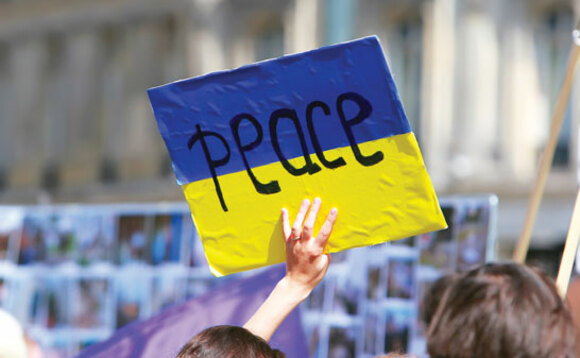Russia's invasion of Ukraine has spurred investors to become increasingly vigilant of where their money is going, according to research by interactive investor.
Some 54% of investors surveyed have become more conscious of capital allocation, viewing their investments through an ethical lens, in the wake of the Russia-Ukraine war.
Meanwhile, 40% of more than 2050 investors surveyed said they were considering investments that align with their moral values as a result of Putin's invasion of Ukraine, in what the Russian president famously termed a ‘special military operation'.
Fiduciary duty trumps ethics for weapons investors
Lee Wild, head of equity strategy at interactive investor, said: "The Russian invasion has had a terrible impact on millions of Ukrainians, and the economic consequences are already being felt around the world. The conflict has made investors think hard about where their money is invested."
Nevertheless, recent research by Morningstar on behalf of Investment Week found that cashflows into nearly 500 global funds with between 5% and 70% of their holdings invested in controversial weapons rocketed to net $792m in January this year when Russian troops were already amassing on the Ukraine border. Inflows into the same funds totalled just $13.1m for the whole of 2021.
Wild noted: "The war in Ukraine is acknowledged not solely as a short-term threat to stock markets, but the biggest threat over the next five years."
Over 40% of ii's respondents believe that a potential escalation of the conflict is the biggest threat to global stockmarkets - ahead of soaring inflation - over the next half decade.
ScotGems trust invests in Russia on day of invasion
Wild added: "How this change in behaviour manifests itself will only become clear over time, but Europe's shift away from dependence on Russian gas, oil, and coal will be a running theme long after the bullets stop firing. With billions of euros earmarked for ‘massive investment' in solar, wind, and hydrogen, it is logical to assume more money will find a home in the renewables sector."
Wild argued that funds which were never traditionally considered to be ESG are "now having to face a new reality where, as agents of investors' capital, they will have to consider more than just the direct financial impact, and risk, alone".
But other concerns, beyond conflict in Ukraine, also weighed on investors' minds looking forward.
Nearly a quarter of those surveyed between 9 and 10 March cited geopolitical tensions involving China, Brazil and the Middle East as a threat to financial markets. Inflation was seen as the biggest threat to stockmarkets by 23% of respondents. Just 7% believe climate change will rock stockmarkets over the next five years.
As a result of ongoing volatility and perpetual uncertainty, investors are accordingly tweaking their portfolios, according to ii.
The investment platform noted that more investors appear to be "tweaking" portfolios in response to the Russia-Ukraine war, with 55% of respondents stating they are making changes, while a quarter are upping stockmarket exposure and 13% are doing the opposite. All the while, nearly 20% are re-allocating to more defensive sectors, the research shows.
This marks a change in mood compared to ii's inflation poll published in February that found 80% of investors were "were following the ‘keep calm and do nothing' mantra in response to rising inflation".
Myron Jobson, senior personal finance analyst at interactive investor, said: "As McDonald's, Coca-Cola, Starbucks, and a number of western companies have halted business in Russia in opposition of the invasion of Ukraine, investors too have pondered where and how their money is being invested.
"For some investors, the ‘keep calm and do nothing' mantra is simply out of the question as the thought of unwittingly helping to fund the Russian war machine through the investments they hold is abhorrent to them."
Jobson added: "The Russia-Ukraine war has usurped inflation and geopolitical tensions more broadly as the biggest threat to global markets over the next five years, with concerns over the impact of climate change and Covid taking a backseat - something few would have predicted a couple of months ago."





